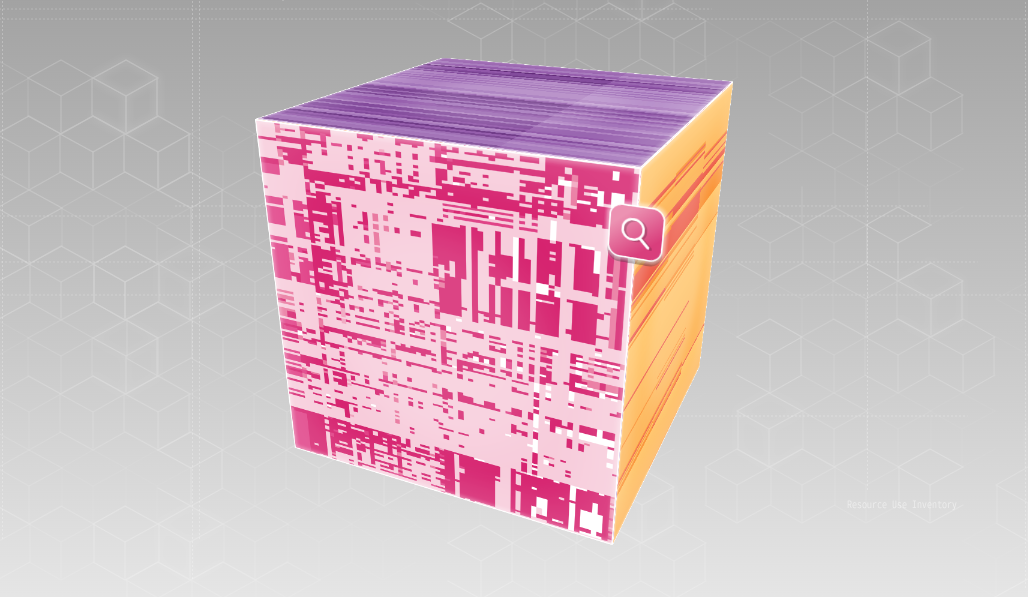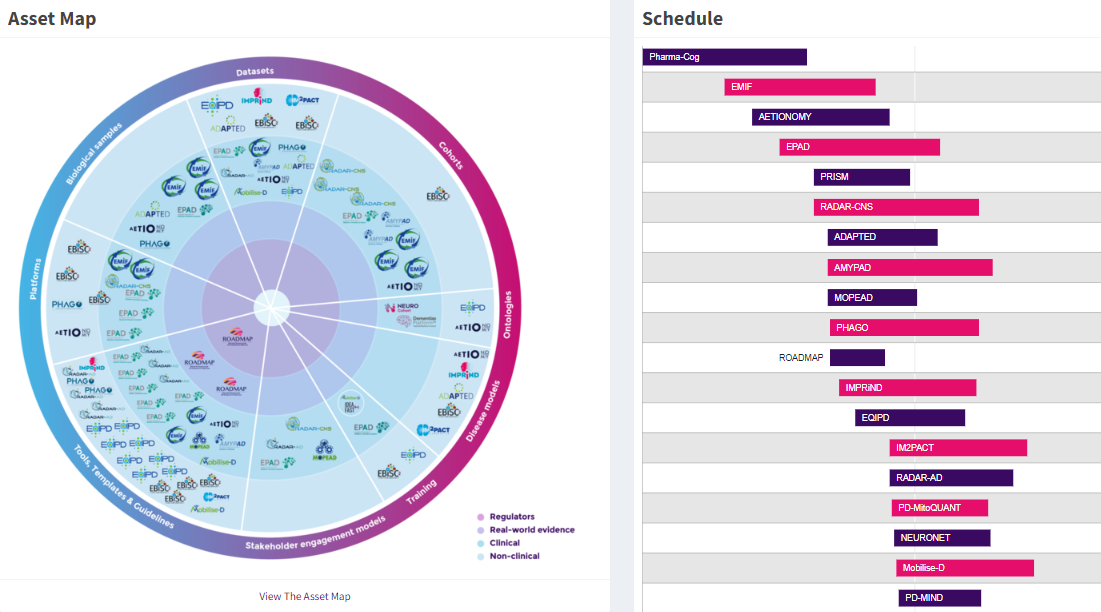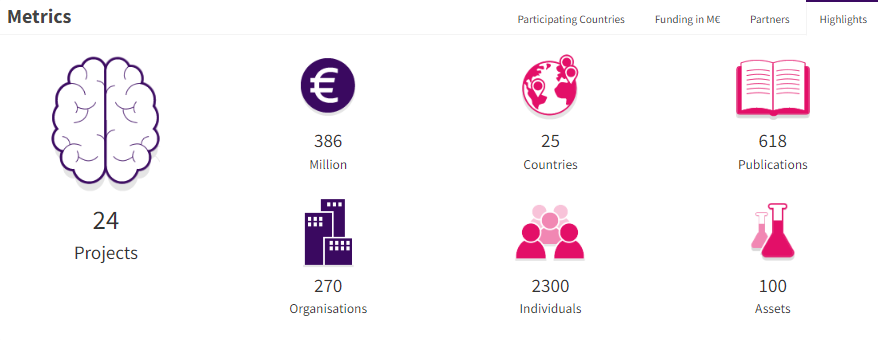

SYNAPSE has been dedicated to the management of research investigating dementia, AD and ND. For over a decade, the team has supported the work of academics, industry partners, regulators, HTAs and patient organisations, all involved in ambitious, impactful and complex projects and initiatives.
This was defined clearly when SYNAPSE began with its role in managing a paradigm-changing trial delivery system EPAD, working across 31 sites, designed to allow agile comparisons across multiple drug candidates. The working relationship continued with its sister project AMYPAD, which focused on the utility of β-amyloid in the identification and management of AD. Representing the other side of data collection, SYNAPSE worked in ROADMAP to tackle the issue of identifying and integrating the vast number of data sources associated with AD across myriad outcomes and disease stages. The essence of the project was represented in the ROADMAP DataCube, developed by SYNAPSE.

As a way of consolidating and managing the state of ND research projects and the landscape, NEURONET, as coordinated by SYNAPSE, reflected a philosophy of collaboration and connection, with a view to present the field clearly, share best current practice, understanding of theory and opportunities for synergy. The NEURONET Knowledge Base, developed by SYNAPSE, demonstrated this ambition, presenting viewers with an interface and dashboard of over 20 projects in the IHI ND portfolio, including their tangible outputs via the Asset Map. Similarly, the strong community established in EPAD was connected to NEURONET through its NEURO Cohort, representing 40 research-active sites across Europe who, with SYNAPSE, developed the NEURO Cohort Common Data Model and minimum data set, produced as a means of facilitating network research participation and enrolment. Considering the final translation of evidence into potential new treatments, NEURONET also developed the Regulatory and HTA Decision Making Tool to inform and guide ND researchers of the roadmaps that lead from research assets to market access.


Since the end of NEURONET in 2022, the research landscape has continued to evolve, and now anticipates how newly developed disease-modifying treatments in AD and ND can be used to provide the best outcomes for people living with the condition. This is a two-pronged approach: on the one hand, it is important to generate new, high quality data, and on the other, necessary to also leverage the wealth of data and biological samples that have been collected already.
"The field of research in Alzheimer's Disease, dementia and neurodegeneration has continued to produce new insights, technologies and, of course, options for treatment. Now, more than ever, research projects need to take advantage of the wealth of information, assets and potential that we have to hand, integrate them, study them, monitor them and deliver them efficiently and effectively to a public that needs them." - Lewis Killin, SYNAPSE
In its portfolio, SYNAPSE continues, as a key partner, to support both types of effort and, in the case of the former, managing the number and quality of tests and assessments that exist in the field to date. Specifically, it is assisting with PROMINENT, by using diverse data from healthcare records and mobile devices, is dedicated to the development and implementation of a precision medicines platform, which will assess people’s response to
new treatments while also managing co-morbidities associated with AD. Similarly, SYNAPSE’s role in the project management of AD-RIDDLE involves the coordination and validation of multiple screening and diagnostic, state-of-the-art tools within a modular “toolbox,” designed for use by members of the public and healthcare professionals. SYNAPSE is also part of the CLAIMS project, which focuses on the use of AI-assisted care for people living with multiple sclerosis, again focusing on precision medicine and treatment comparison.
Finally, SYNAPSE is dedicated towards the sustainability of EPND, which represents an accessible, searchable catalogue of research data and samples, collected from people with or at risk from ND. SYNAPSE provides guidance and advice on sustainability to ensure that these valuable assets can be accessed and used for discoveries long after the end of the project itself.

The aim of PROMINENT is to create a platform for precision medicine in the diagnosis and treatment of neurodegenerative disease and co-morbidities. Therefore, it will represent the first application of the platform is in Alzheimer’s disease (AD) and other dementia disorders, with scalability to other neurodegenerative diseases and beyond.

The Real-World Implementation, Deployment, and Validation of Early Detection Tools and Lifestyle Enhancement (AD-RIDDLE) project will offer healthcare providers a toolbox platform of validated resources and tailored interventions to help detect, diagnose, prevent, and treat Alzheimer’s disease. The AD-RIDDLE consortium brings together a unique, interdisciplinary collaboration of academic institutions and healthcare providers, pharmaceutical and diagnostic companies, regulatory bodies, and patient advocacy organisations.

The CLAIMS (Clinical impact through AI-assisted MS care) project will run over the next 4 years to realize a companion diagnostic platform supporting the assessment and specification of disease worsening in Multiple Sclerosis (MS), and making data-driven precision medicine a reality for patients with MS (pwMS).

The European Platform for Neurodegenerative Diseases (EPND) is a consortium of multidisciplinary public and private sector partners in neurodegenerative disease research. Our mission is to accelerate the discovery of diagnostics and treatments by removing barriers to data and sample sharing and fostering collaboration.